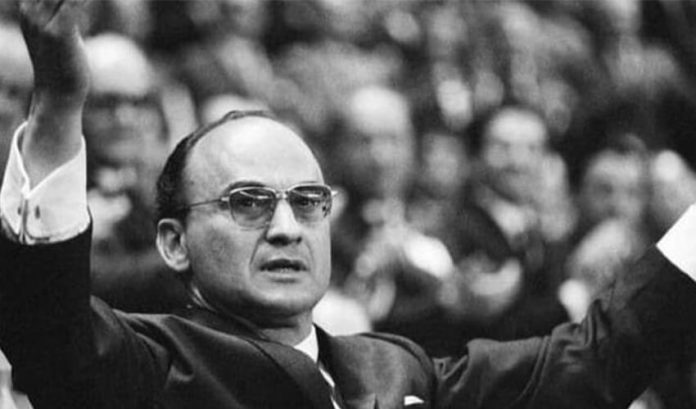Luis Echeverría Álvarez, a controversial and widely-despised president (1970–1976) who ruled Mexico during the country’s “dirty war,” died Friday at the age of 100.
The former Institutional Revolutionary Party (PRI) president passed away at his home in Cuernavaca, Morelos. The cause of death hasn’t been disclosed, but Echeverría was hospitalized for pulmonary problems in 2018.
President López Obrador confirmed the passing of the ex-president in a social media post on Saturday morning.
“In the name of the government of Mexico, I send respectful condolences to the family and friends of Mr. Luis Echeverría Álvarez, president of Mexico during the six-year period from 1970 to 1976,” he wrote.
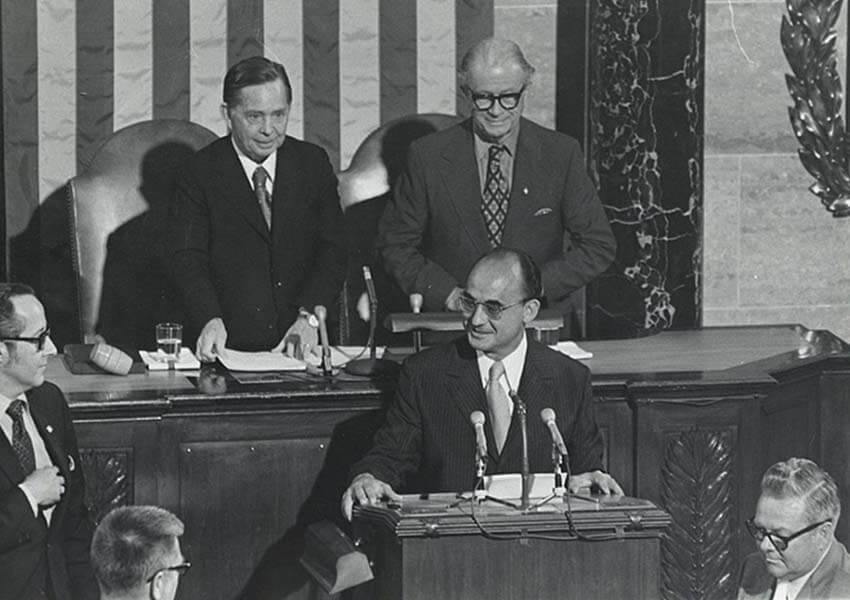
The PRI, which ruled Mexico for most of the 20th century, also passed on its condolences to the family and friends of Echeverría, who turned 100 in January and thus became the first Mexican president to reach triple figures.
Born in Mexico City on January 17, 1922, Echeverría studied law at university and started working for the PRI in 1946. He was a deputy interior minister by the late 1950s and became interior minister at the tail end of Adolfo López Mateos’ 1958-64 presidency.
Echeverría stayed on as interior minister when Gustavo Díaz Ordaz assumed the presidency in late 1964 and remained in the position until November 1969. His position in the Díaz government – interior minister is generally considered Mexico’s second highest office – implicated him in the 1968 massacre of students in the Mexico City neighborhood of Tlatelolco, perpetrated by the armed forces just 10 days before the start of the Summer Olympics in the Mexican capital.
The massacre, in which an estimated 350 to 400 students were killed, is considered part of the Mexican Dirty War, an internal conflict from the 1960s to the 1980s in which successive PRI governments violently repressed left-wing student and guerrilla groups.
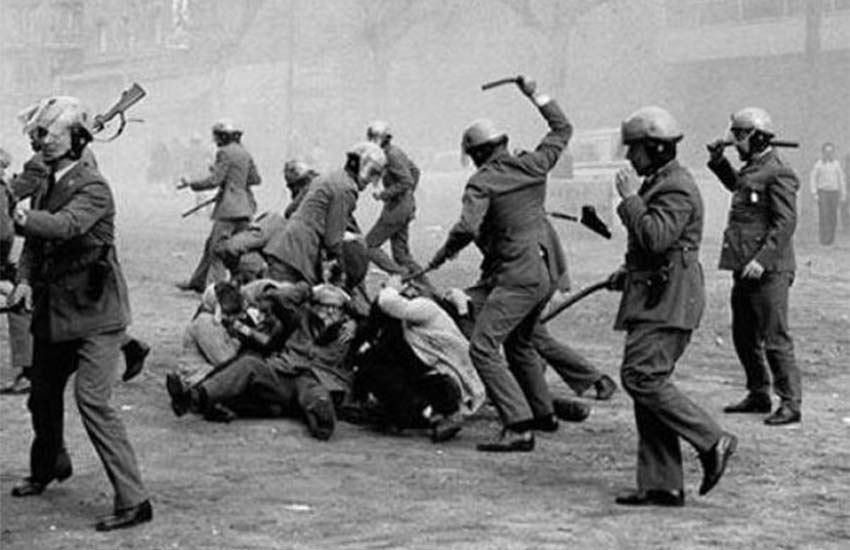
State-sponsored violence continued with Echeverría at the helm of the federal government, most notably with the 1971 Corpus Christi massacre in Mexico City, briefly depicted in the award-winning 2018 film Roma. An estimated 100 to 200 students, some in their early teens, were killed in the massacre known as El Halconazo, or the Hawk Strike, because it was perpetrated by a government-trained paramilitary group called Los Halcones.
Echeverría attempted to distance himself from the violence and enforced disappearances that marked both Díaz’s government and his own, but he was unable to escape the attention of a special prosecutor’s office established during the 2000–2006 Vicente Fox presidency to investigate violence perpetrated by the state in the 1960s, ’70s and ’80s.
The ex-president was summoned to give evidence in 2002, formally accused of genocide and a warrant for his arrest was issued. But Echeverría obtained an injunction against the arrest order and was never taken into custody. He did, however, spend a period under house arrest before being cleared of genocide charges related to the Tlatelolco massacre in 2009.
A group dedicated to holding the perpetrators of the Tlatelolco and El Halconazo massacres to account asserted in a statement that Echeverría was not in fact exonerated.
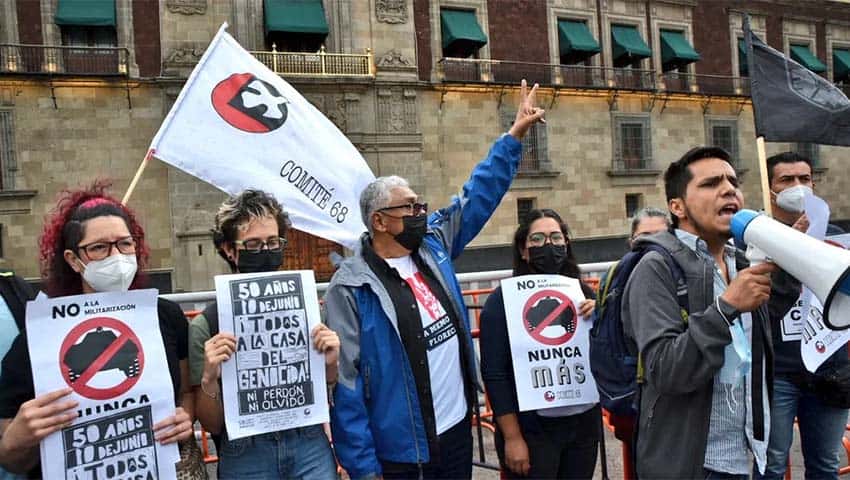
“He died accused of the crime of genocide,” said the Comité 68 Pro Libertades Democráticas, which denounced the federal Attorney General’s Office for “inaction” in relation to the ex-president’s case.
The committee – which is made up of former student leaders – said the death of Echeverría didn’t spell the end of the investigation into crimes committed by the state when he was in government and demanded “the continuation of judicial processes.”
“The list of perpetrators is known by everyone but they continue enjoying impunity and the protection of official political power,” it said.
“We demand a reform to the legal system so that no crime of the state against the people goes unpunished. … We insist on full access to justice, compensation and a guarantee that” state-sponsored crimes won’t happen again, Comité 68 said.
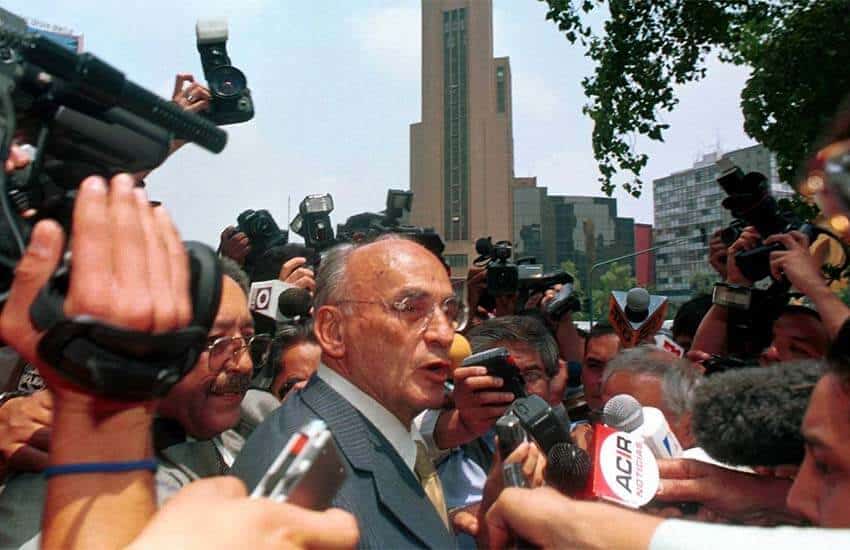
The committee also demanded that Echeverría’s “considerable” assets be sold and that their proceeds go to compensating victims. “We don’t forget, we don’t forgive and we don’t reconcile,” the group said.
One political figure who had some kind words for the former president was Porfirio Muñoz Ledo, an 88-year-old former deputy, senator, federal cabinet minister and ambassador to the European Union.
Muñoz, who was labor minister and subsequently PRI national president during Echeverría’s government, told the newspaper Milenio that the former leader had an impressive capacity for work. He also said that the fact he reached the age of 100 was a testament to his “extraordinary physical strength.”
“I got to know him very closely, I appreciated some of his values,” Muñoz said before expressing regret that “not everything was rosy in his government.”
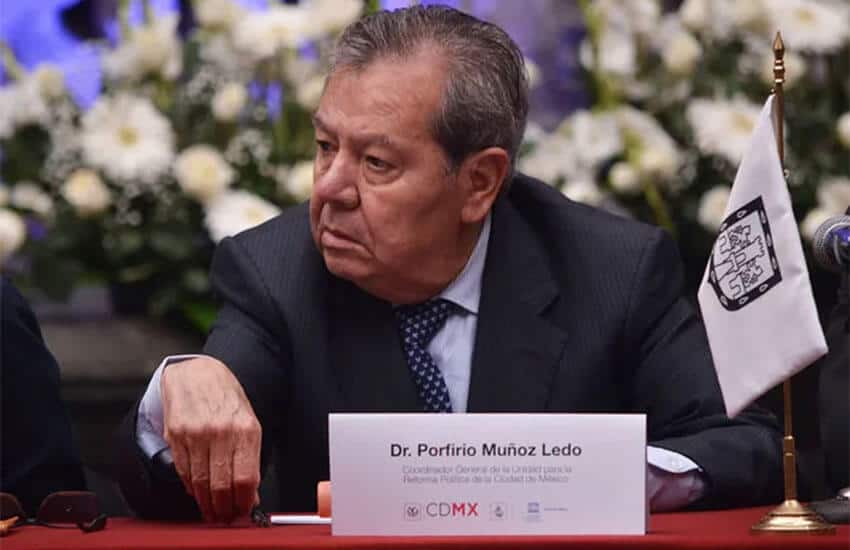
On Twitter, Muñoz said that Echeverría closed a period of Mexican history called “revolutionary nationalism” and opened the country’s doors to globalization. “His political imagination [and] his mexicanismo stand out,” he added.
Although Echeverría will mostly be remembered for the state-sponsored crimes committed during his administration, Milenio mentioned some of his achievements, including average economic growth of 6.1% during his six years in office, the development of two Pacific coast ports and the creation of the National Workers Housing Fund and the Mexican Institute of Foreign Trade.
In addition, the former president increased spending on infrastructure, created dozens of public trusts and state-owned companies, expanded agricultural and fishing subsidies and provided additional support for the nation’s poor. Echeverría also styled himself as a leader of the third world, championing the Charter of Economic Rights and Duties of States, which was approved by the United Nations General Assembly in 1974.
After leaving office in 1976, the former president served as Mexico’s ambassador to the United Nations Educational, Scientific and Cultural Organization as well as ambassador to Australia.

Echeverría is survived by five of the eight children he had with María Esther Zuno Arce, daughter of a 1920s governor of Jalisco. Zuno passed away in 1999.
With reports from Milenio, Aristegui Noticias, Expansión Política and Publimetro
